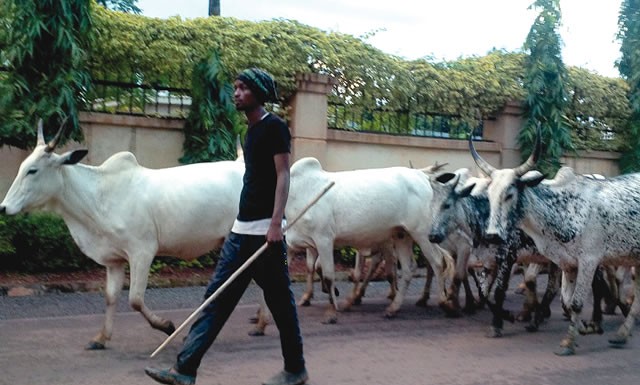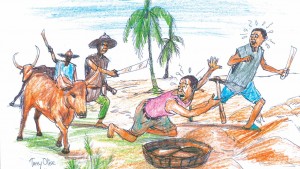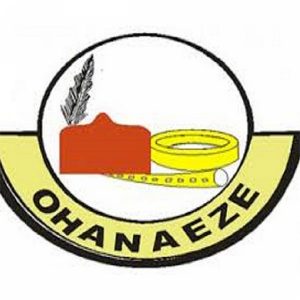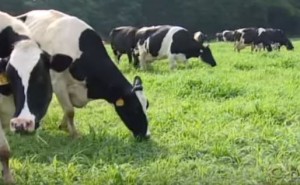
Leadership / Nigeria: Nigeria loses an estimated N2.3 trillion annually from conflicts between herders and farmers in four states namely Plateau, Nasarawa, Benue and Kaduna.
The estimate of the loss is a part of findings in a report by the Mercy Corps, a leading global humanitarian agency, of what Nigeria stands to gain if it ends the herders/farmers’ conflicts.
The report, which studied the effects of the conflicts between 2010 and 2015, noted that Nigeria loses about 2.79 per cent of its Gross Domestic Product (GDP) due to the conflicts with Plateau State losing an estimated 75 per cent of its Internally Generated Revenue (IGR), Kaduna, 22 per cent Nasarawa, 45 per cent and Benue, 44 per cent.
Presenting the report yesterday in Abuja, the Country Director, Nigeria of Mercy Corps, Iveta Ouvry, that the conflicts despite costing thousands of live and displacing thousands more “rarely get the desired attention”.
Ouvry said, “We wanted to investigate the economic cost of the conflict so that policy makers will treat this issue with the seriousness that it deserves. The theory is that when policy makers and others come to know how much these conflicts cost, they will support efforts to end them.”
Decades-old violent conflicts between herders and farmers in Nigeria’s Middle-Belt have devastated local communities, reducing their security and economic activities as well as threaten the stability of Nigeria.
In his speech, the Head of Grazing Reserves of Stock Routes, M.S Ahmad, said that there have been concerted government efforts to address the conflicts and their attendant consequences.
Ahmad, who represented the Permanent Secretary, Ministry of Agriculture, Dr. Shehu Ahmed, said, “Generally, livelihood varies between pastoralism and a mixture of the two in Nigeria’s Middle Belt states. However, clashes between these communities over access to land, water and other natural resources have negatively impacted on the livelihood of these communities.” He pointed that the federal government has set aside 415 grazing reserves but the reserves have been encroached upon due to population explosion with stock routes even blocked.
In its recommendations, the report, which was funded by the UK Department for International Development (DFID) advocated the establishing and funding of grazing reserves and stock routes, strengthening conflict management mechanisms, improving security and justice system and supporting agricultural and livestock production.
Benue: Scores Feared Killed, Houses Burnt
Scores of persons were killed and several houses were razed during fighting between the Jukun and Tiv farmers in Angbaaye and Abinsi communities of Guma Local Government area of Benue state yesterday.
Angbaaye and Abinsi are located along the Makurdi-Gboko Expressway. The communities are agrarian areas predominantly occupied by fishermen of the Jukun and Tiv ethnic groups.
The clash, which started at about eight o’clock in the morning, lasted till noon until security operatives were drafted to the troubled areas to maintain peace.
The busy Makurdi-Gboko road was barricaded by irate youths for several hours, resulting in heavy traffic gridlock.
LEADERSHIP FRIDAY gathered that the clash erupted because of a parcel of swampy land where the people fish. Another version said the fighting was due to unsettled claims of ownership of a piece of land by both ethnic groups.
The Benue State Commissioner of Police, Paul Yakadi confirmed the clashes and said they erupted over a land where the people fish but said the Police were yet to receive information on the number of deaths.
Yakadi said 6 houses were burnt down and 3 persons injured, insisting that investigation into the matter was on-going as police were swiftly drafted to the communities.



